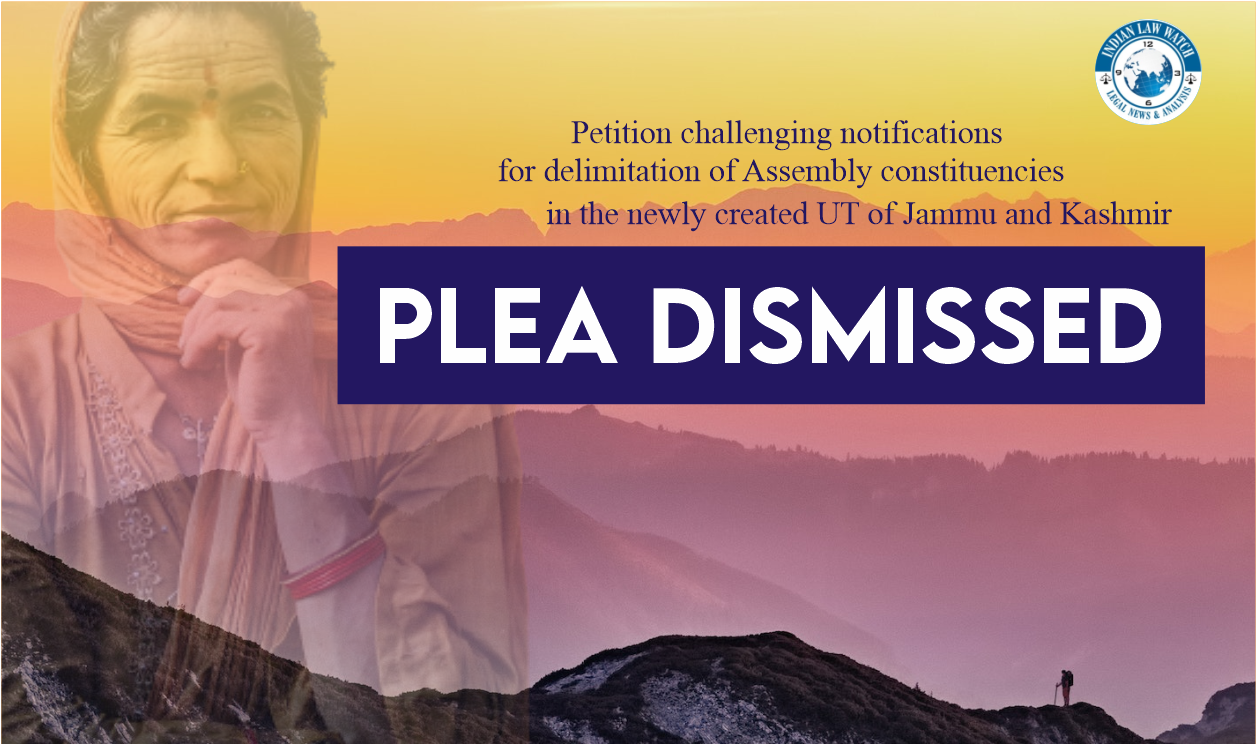

The Supreme Court on Monday dismissed a petition challenging notifications for delimitation of Assembly constituencies in the newly created UT of Jammu and Kashmir, saying “there is absolutely no merit in any of the contentions raised by the petitioners.”
The Supreme Court on Monday dismissed a petition challenging notifications for delimitation of Assembly constituencies in the newly created UT of Jammu and Kashmir, saying “there is absolutely no merit in any of the contentions raised by the petitioners.”

A Bench of Justice SK Kaul and Justice AS Oka, however, clarified that it had not ruled on the validity of the Jammu & Kashmir Reorganisation Act, 2019, which is pending before another Bench of the top court examining the petitions challenging the abrogation of Article 370 of the Constitution.
“We are aware that the issue of the validity of the exercise of the power is the subject matter of petitions pending before this court. Therefore, we have not dealt with the issue of validity. Nothing stated in this judgment shall be construed as giving our imprimatur to the exercise of powers under clauses (1) and (3) of Article 370 of the Constitution,” said the Bench which had reserved its verdict on December 1.


-
The verdict came on a petition filed by Srinagar residents Haji Abdul Gani Khan and Mohammad Ayub Mattoo. They had questioned the increase in the number of seats from 83 to 90 (excluding 24 seats in Pakistan-occupied Kashmir) in the UT as recommended by the Delimitation Commission headed by former Supreme Court judge Ranjana Prakash Desai.
-
The petitioners had contended it went against Articles 81, 82, 170, 330 and 332 of the Constitution and statutory provisions, particularly Section 63 of the J&K Reorganisation Act. The number of seats in the Assembly could not have been increased.
-
Defending the delimitation exercise, the Centre said the commission was empowered to do so. The Jammu and Kashmir Reorganisation Act didn’t preclude the establishment of the Delimitation Commission by the Centre, Solicitor General Tushar Mehta had told the Bench.
-
The Centre maintained that the delimitation exercise had become final and couldn’t be challenged in courts. The Election Commission said the delimitation exercise had attained finality after the publication of the Delimitation Orders in Gazette Notifications on May 5, 2022, in terms of the Delimitation Act.
-
Nobody, except the accused, their one representative and lawyers, will be allowed to be present in the court during the trial in the Lakhimpur Kheri violence cases in which Union minister Ajay Kumar Mishra’s son Ashish is an accused.
Source: The Tribune





